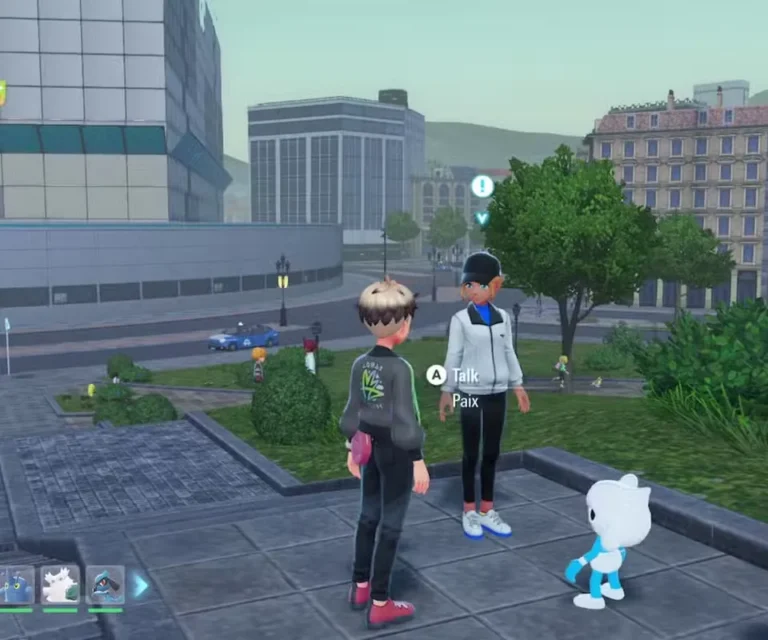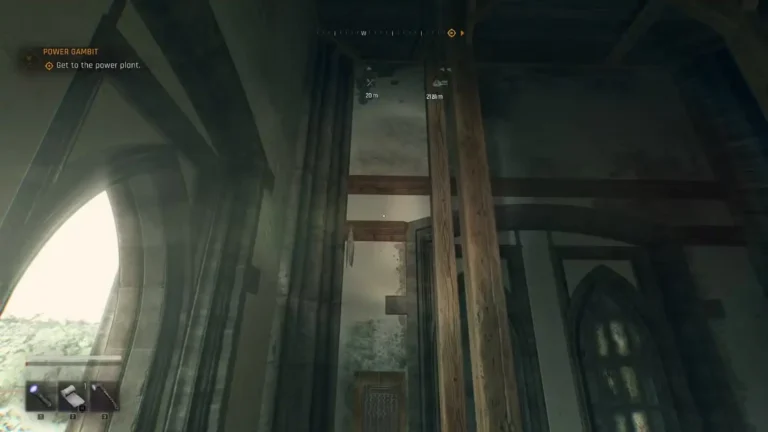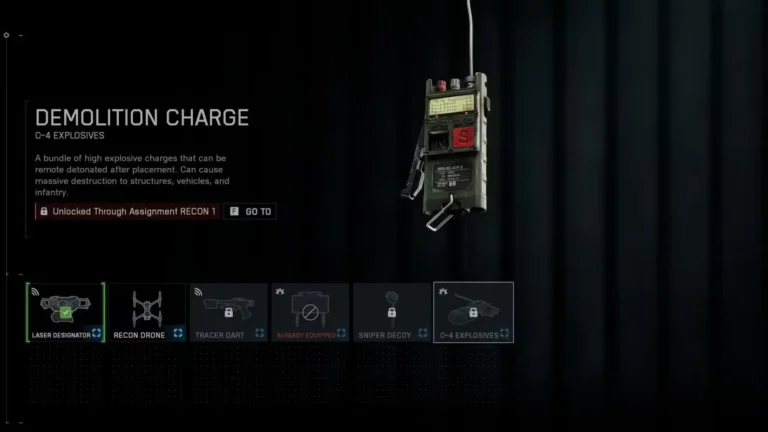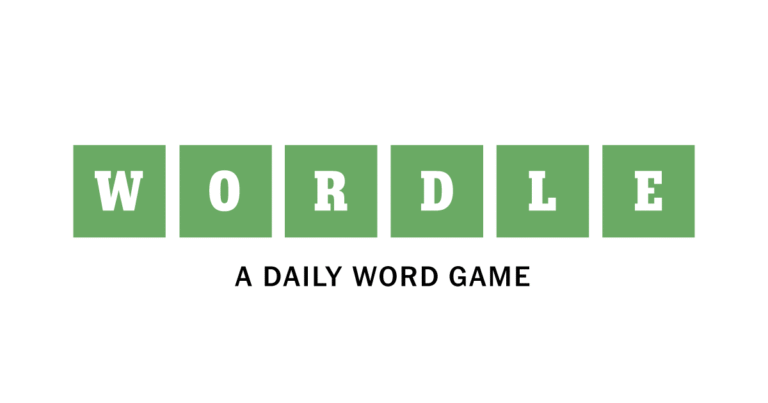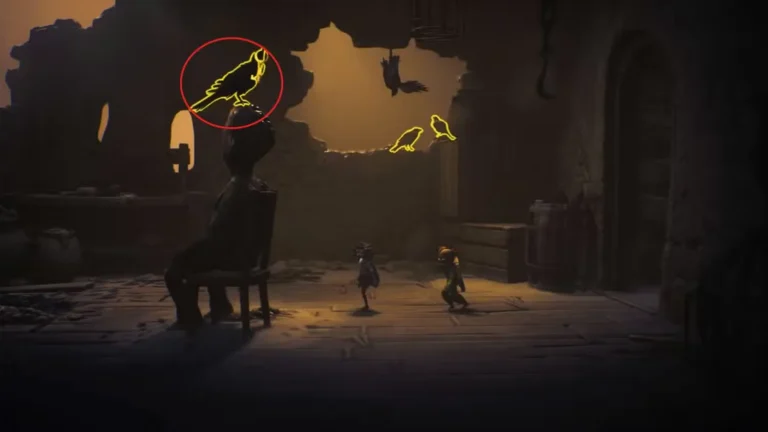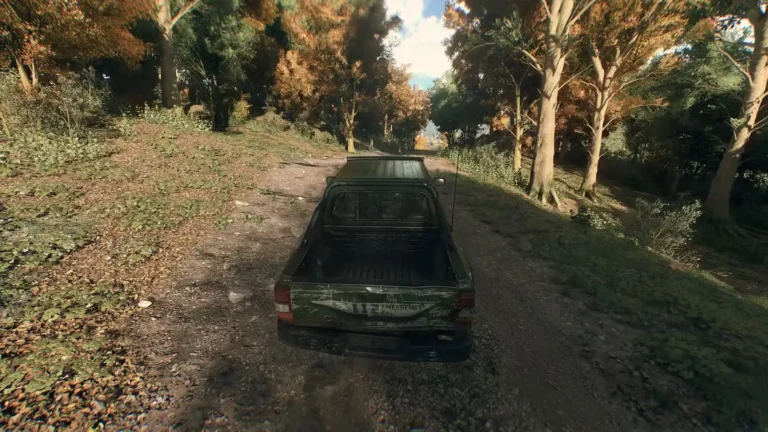When Does Each Dispatch Episode Release? Full Schedule & Launch Details
If you’re itching to dive into AdHoc Studio’s superhero workplace comedy Dispatch, you’re probably wondering when you can binge the entire story. Good news: you won’t be waiting months between episodes like the old Telltale days. The entire eight-episode season drops over just four weeks, which is honestly the perfect sweet spot—fast enough to stay…
If you’re itching to dive into AdHoc Studio’s superhero workplace comedy Dispatch, you’re probably wondering when you can binge the entire story. Good news: you won’t be waiting months between episodes like the old Telltale days. The entire eight-episode season drops over just four weeks, which is honestly the perfect sweet spot—fast enough to stay hooked, but with enough breathing room to process those heavy choice consequences.
Let me break down everything you need to know about the release schedule, what’s included in each edition, and what makes this narrative-driven superhero game worth your time.
The Full Dispatch Episode Release Schedule
Dispatch kicked off on October 22, 2025 with a double-episode launch, and it’s following a consistent two-episodes-per-week cadence through mid-November. Here’s your complete roadmap:
| Episodes | Episode Titles | Release Date |
|---|---|---|
| 1 & 2 | Pivot / Onboard | October 22, 2025 |
| 3 & 4 | Turnover / Restructure | October 29, 2025 |
| 5 & 6 | Team Building / Moving Parts | November 5, 2025 |
| 7 & 8 | Retrospective / Synergy | November 12, 2025 |
Platform availability: PlayStation 5 and PC (Steam) at launch. Other platforms haven’t been confirmed yet, but given the game’s indie-friendly design, Switch and Xbox releases wouldn’t be surprising down the line.
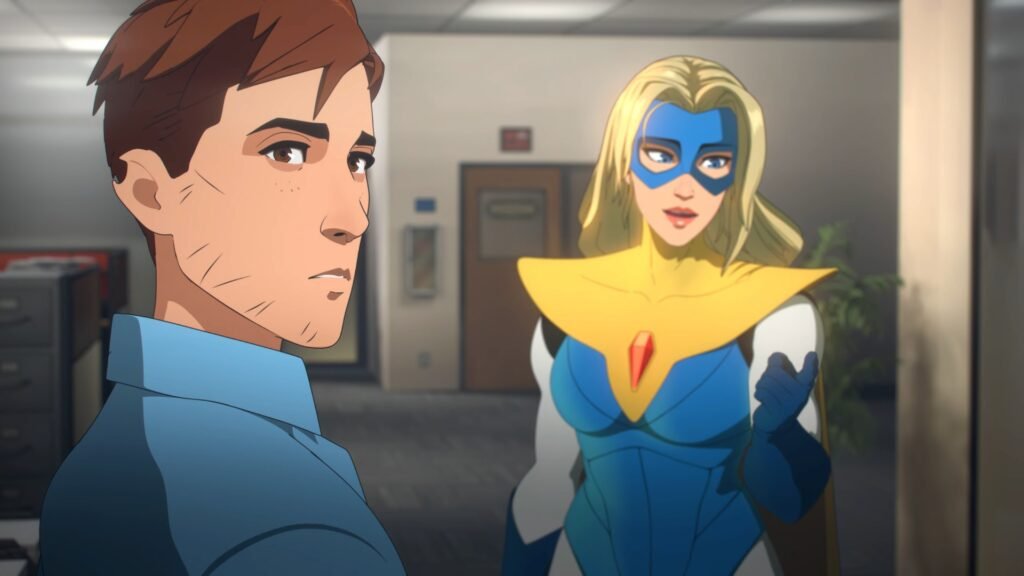
Why This Release Structure Works
I actually love this approach. Eight episodes in four weeks means you can:
- Stay emotionally invested without forgetting what happened last episode
- Build routine around Tuesday drops (perfect midweek entertainment)
- Avoid spoilers since everyone’s progressing at roughly the same pace
- Actually finish before moving on to the next game (we all have backlogs, let’s be real)
Compare this to the old episodic model where you’d wait 2-3 months between chapters and completely forget your choices? This is way better.
What’s Actually in the Game? Meet Robert Robertson
For those just discovering Dispatch, here’s the setup: You play as Robert Robertson, formerly known as Mecha Man, a superhero whose glory days ended when his mech-suit got destroyed in a battle with his nemesis.
Instead of retiring to a beach somewhere, Robert’s now stuck behind a desk at a superhero dispatch center in modern-day Los Angeles. His new job? Managing a ragtag team of ex-supervillains who are trying (sort of) to be heroes now.
The twist: These aren’t your noble, reformed villains. They’ve got powers, massive personality flaws, attitude problems, and zero interest in following orders. You’re basically managing the world’s most dysfunctional workplace—except your coworkers can literally explode things with their minds.
Gameplay: More Than Just Dialogue Choices
Dispatch blends narrative storytelling with light strategy elements. You’re not just picking dialogue options (though those choices definitely matter)—you’re also:
- Assigning heroes to missions based on their abilities and personalities
- Managing team dynamics because sending two heroes who hate each other on a mission together? Yeah, that’ll go well
- Dealing with consequences when missions go sideways because you picked the wrong person
- Navigating workplace politics with all the drama of The Office mixed with superpowers
It’s like if Parks and Recreation had a baby with a Telltale game, and that baby could shoot lasers.
Pro tip: If you’re just starting out, check out our complete Episode 1 walkthrough to understand which early choices actually impact the story and which are just flavor text.
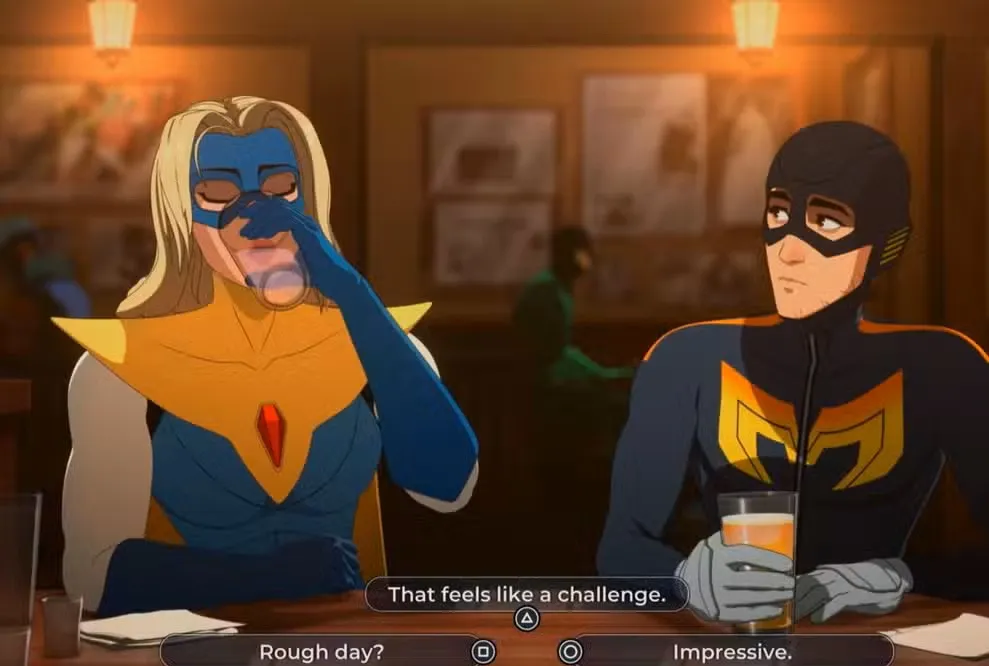
Dispatch Editions: Standard vs. Deluxe
AdHoc Studio is keeping things simple with two editions at launch. No confusing tiers or exclusive content locked behind $100 special editions—just two straightforward options.
Standard Edition
- What you get: All 8 episodes as they release
- Perfect for: Anyone who just wants to experience the story without extras
Deluxe Edition
Includes everything in Standard, plus:
- Digital Artbook: Behind-the-scenes look at AdHoc Studio’s creative process (concept art, character designs, the works)
- Four Digital Comics: Expanded lore and side stories from the Dispatch universe
The best part? You can upgrade from Standard to Deluxe later without repurchasing the base game. This is honestly consumer-friendly as hell—not enough studios do this.
Which Edition Should You Buy?
Get Standard if: You’re budget-conscious or unsure if the game is your thing. You can always upgrade later if you fall in love with the world.
Get Deluxe if: You’re already sold on the concept and want to support indie developers. The comics and artbook add context that enriches the experience, especially if you’re into worldbuilding.
My take: Start with Standard. If you finish Episode 2 and find yourself checking the clock for next Tuesday’s release, upgrade to Deluxe. The comics aren’t going anywhere.
Why Dispatch Feels Different (In a Good Way)
The superhero genre is oversaturated right now. We’re drowning in Marvel, DC, The Boys, Invincible—there’s a lot of cape fatigue happening. So what makes Dispatch worth your time?
It’s About the After Part
Most superhero stories focus on the glory: the big battles, saving the world, dramatic sacrifices. Dispatch asks a more interesting question: What happens when that’s over?
Robert isn’t mourning his powers—he’s dealing with middle management hell, trying to wrangle ex-villains into functional employees, and questioning whether any of this actually matters. It’s grounded, relatable, and weirdly profound for a game about people with superpowers.
The Humor Hits Different
This isn’t quippy Marvel humor or edgy Boys-style satire. It’s more like workplace comedy—awkward meetings, personality clashes, bureaucratic nonsense. The kind of humor that makes you laugh and then immediately think “oh god, that’s my actual job.”
The game leans into the absurdity of treating superhero work like any other corporate gig, complete with mission reports, team-building exercises, and probably some mandatory training modules.
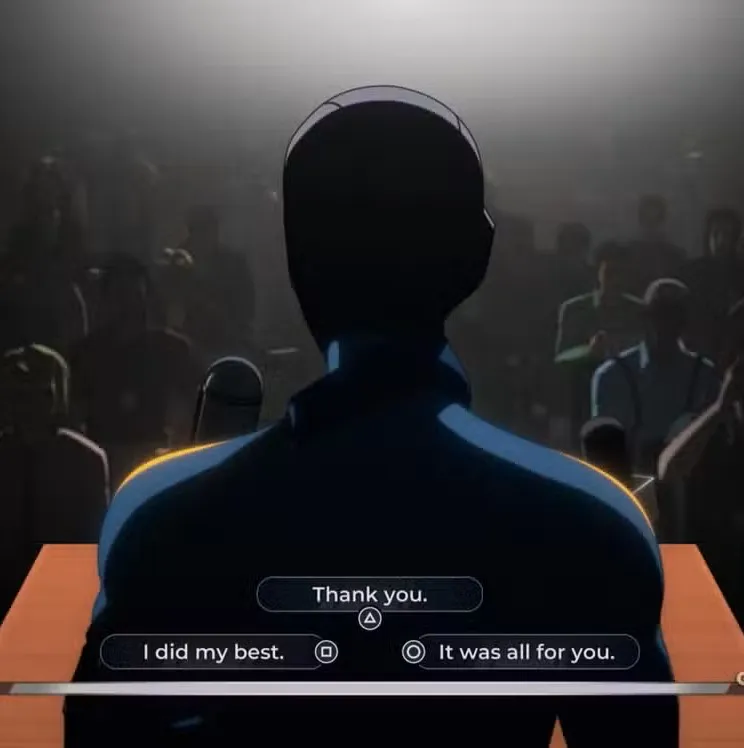
Choices That Respect Your Time
Unlike some narrative games that pretend your choices matter when they don’t, Dispatch is upfront about what’s flavor text and what has consequences. Some decisions shape relationships, some affect your reputation, and some are just about defining who Robert is as a character.
Our Episode 1 guide breaks down exactly which choices matter so you can play authentically without constantly anxiety-spiraling about whether picking the wrong dialogue option will ruin everything 20 hours later.
It’s Manageable
Eight episodes over four weeks is digestible. You’re not committing to a 100-hour RPG or an endless live service game. It’s a complete story with a beginning, middle, and end, releasing fast enough to binge but slow enough to savor.
In an era of endless content, sometimes “finished and satisfying” is the best feature a game can have.
What to Expect Week by Week
Based on the episode titles, here’s my educated guess about the story arc:
Week 1 (Pivot/Onboard): Robert’s transition into dispatch work, meeting the ex-villain team, establishing the world and core mechanics.
Week 2 (Turnover/Restructure): Things start going wrong. Team conflicts, failed missions, maybe someone quits or gets fired. The honeymoon period is over.
Week 3 (Team Building/Moving Parts): Robert trying to fix the dysfunction, building actual relationships with his problem children, preparing for something bigger.
Week 4 (Retrospective/Synergy): The climax. Everything comes together (or falls apart). Those early choices pay off. Tissues may be required.
That final episode being titled “Synergy” is either brilliantly ironic or genuinely heartwarming, and I’m here for either interpretation.
Bottom Line: Should You Play Dispatch?
Play Dispatch if you:
- Love narrative-driven games with meaningful choices
- Enjoy workplace comedies and character-driven stories
- Want something fresh in the superhero genre
- Appreciate games that respect your time with complete, finite stories
- Miss the Telltale-style episodic format but hated waiting months between episodes
Skip it if you:
- Need heavy action and combat mechanics
- Prefer gameplay over story
- Don’t care about character relationships and dialogue
- Already burnt out on anything superhero-related
My verdict: Dispatch is shaping up to be one of those sleeper hits that flies under the radar because it’s not a AAA blockbuster, but delivers exactly what it promises with heart and humor. The four-week release structure is genius, the premise is clever, and early impressions suggest AdHoc Studio knows how to write compelling characters.
For the price of a couple coffee runs, you get a complete story with actual replay value (those choices do matter). That’s a solid value proposition in 2025.
Are you playing Dispatch as episodes drop, or waiting for the full release to binge? Personally, I’m team “play Tuesday night and overthink my choices until the next episode drops.” That’s half the fun.
Check out Dispatch on Steam and jump in before the internet spoils the big twists. Trust me, with this release schedule, spoilers are coming fast.


